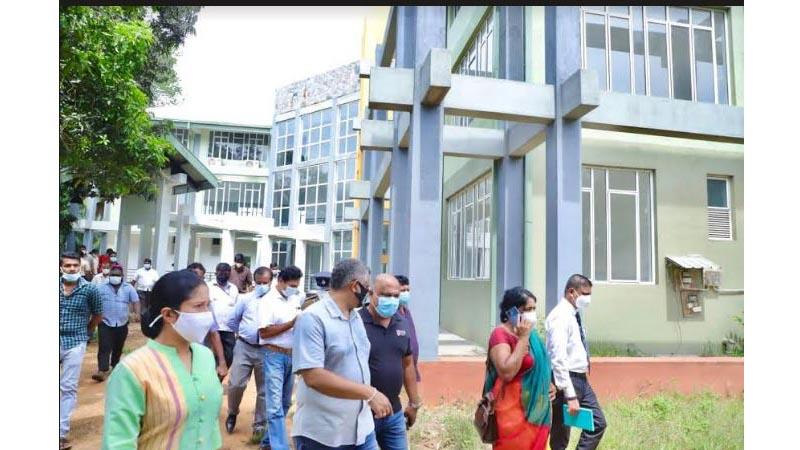Sri Lanka Government to set up 10 city universities in remote districts
The Sri Lankan government has decided to expand the university system by implementing its ‘city university’ concept, under which institutions will produce graduates to fit the professional needs of the specific district.
Under the ‘Non-Resident City University programme’, the government is planning to set up 10 city universities in remote districts outside of Colombo.
“The main objective of the project is to produce a graduate with the required professional skills to meet the human resource needs of a specific area. These universities will set up district-wise and enrol students only within the district,” University Grants Commission (UGC) Chairman Professor Sampath Amaratunge told University World News.”.
One such university will be established in each of the following 10 districts: Kegalle, Kalutara, Nuwara Eliya, Galle, Hambantota, Ampara, Puttalam, Matara, Matale and Mullaitivu districts. In the 2021 budget, the government allocated US$5 million for this project.
The first city university will be opened in the coming months in the Rambukkana area, which is located in Kegalle district. In the first phase, the university, which will be affiliated to the Sabaragamuwa University, will award degrees in four areas – tourism, agriculture, industries and the plantations industry.
Target of 60,000 university places
The project was launched in line with the government policy statement, ‘Vistas of Prosperity and Splendour’, as well as election promises to increase the number of students admitted to universities to 60,000.
The government hopes to enrol a total of 41,000 students in the country’s state universities this year – an increase of approximately 30%, the biggest ever single surge in enrolment in the state university system.
In parallel with the city universities, the government is converting several higher education institutions into degree-awarding entities.
The UGC chairman said that the government recently uplifted Gampaha Wickramarachchi Ayurveda Institute into a fully-fledged university – the 16th national university of Sri Lanka. The new university will offer seven new academic programmes and a total of 350 students will be enrolled for this year.
In order to enhance the professional education of nursing and nursing services, the government is set to upgrade the nursing schools to degree-awarding institutions. Sri Lanka Nursing University will be set up for this purpose, the UGC chairman said.
The new Vavuniya University will be set up in the northern part of the country in Vavuniya district.
In addition, a college of education will be upgraded to a new degree-awarding university for teachers, UGC Chairman Sampath Amaratunge said.
Meanwhile Sri Lanka’s president has taken the initiative to establish a new university catering to port and aviation technology engineering subjects by 2023, in Deniyaya area in the Matara District.
Massive shortfall in university places
Annually about 350,000 students sit the university entrance (A-level) examination, yielding about 180,000 students eligible to enter university. But due to capacity and resource limitations, only 30,000 students are admitted to state universities.
About 12,000 Sri Lankan students seeking higher education go to foreign countries annually, which drains US$400 million of foreign exchange from the country.
The limited capacity of the universities means most students miss the opportunity to obtain a higher education and remain unemployed.
Another aim of the university expansion is to help reduce the youth unemployment rate, which is considered a crucial issue with 23.3% of 15- to 24-year-olds out of work, according to the Sri Lanka Labour Force Survey.
This article first published on University World News Website.

